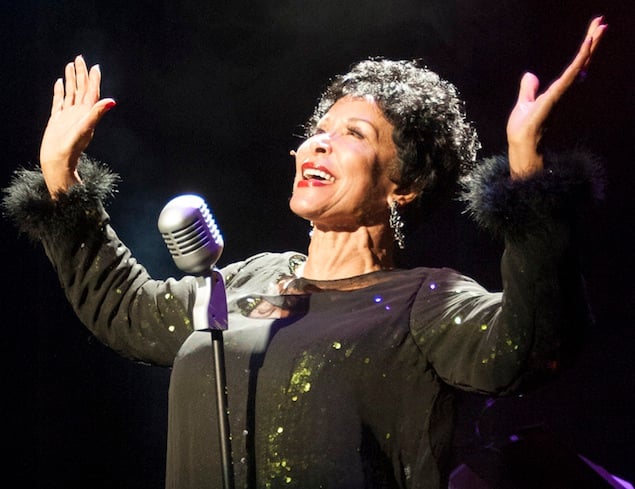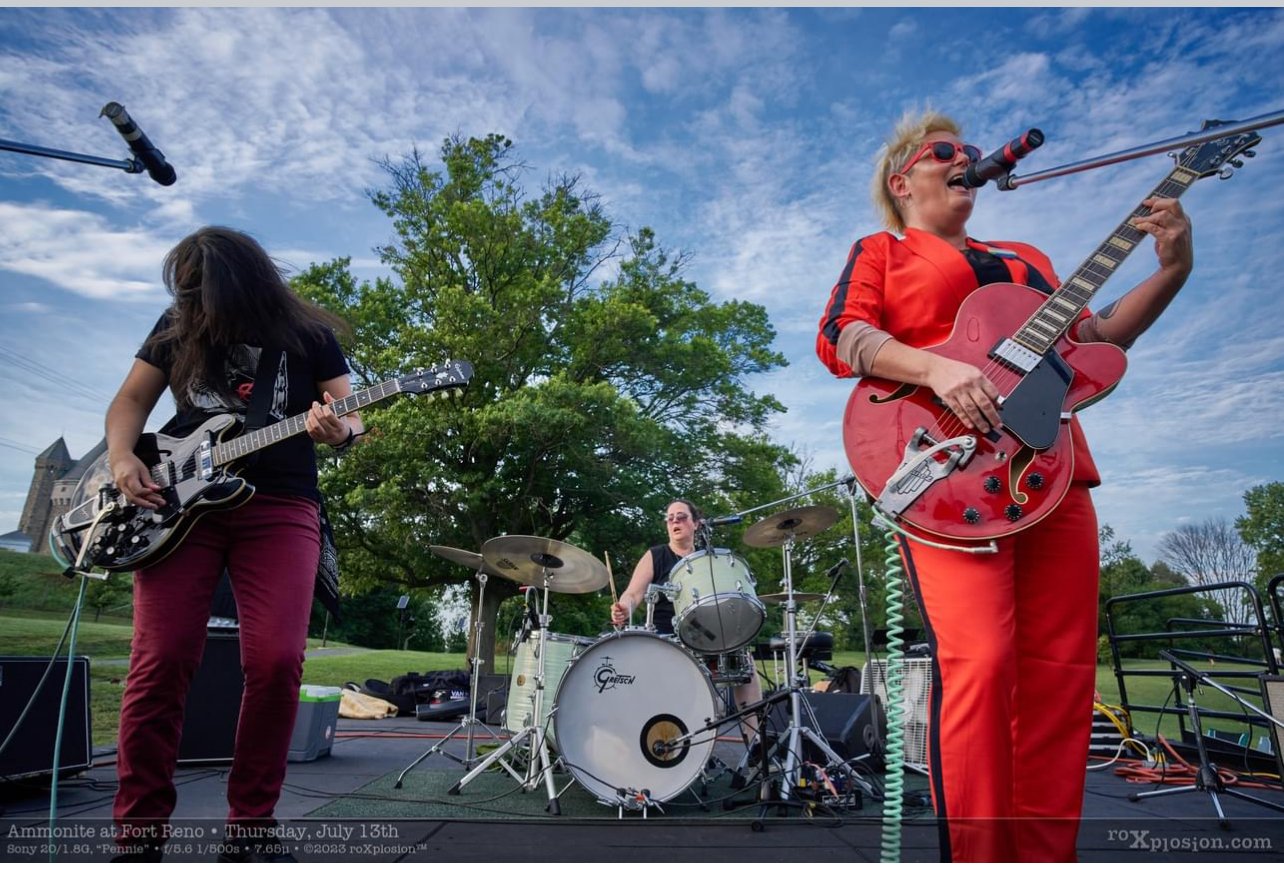
While the rest of her peers were drowning in late-night whiskey binges and struggling to croon through dope sickness, Ella Fitzgerald maintained a honeyed voice, perfect pitch, and a milquetoast persona. She didn’t drink; she didn’t smoke. The worst anyone could say about the First Lady of Song was that her fashion sense, such as it was, was an acquired taste.
Consciously or no, Fitzgerald’s shyness meant she dodged the spotlight and cultivated an image that belied a rather extraordinary backstory. The truth is, for all her God-given talent she was no saint: She was as complex and multilayered as the American songbook she helped to canonize. She was a product of early orphanhood, an abusive stepfather, some months on the streets, and time spent as a mafia runner and bordello lookout before she became an Apollo Theater darling, and so she definitely deserves a musical biopic or two.
Much of this rich backstory is ignored or glossed over in Ella Fitzgerald: First Lady of Song, playing through March 16 at MetroStage. The show does make an attempt to hit the important notes in the singer’s biography, but ultimately skips the nuance of narrative in favor of showcasing her oeuvre. It’s a musical revue rather than a warts-and-all biopic.
This production, directed by Maurice Hines, was conceived by Hines and written by Lee Summers in 2004; it premiered in New Brunswick, New Jersey, in same year. Hines—a dancer, choreographer, and singer, and brother to the late Gregory Hines—got several glowing reviews for his show Maurice Hines Is Tappin’ Thru Life at Arena Stage in 2013. This time, however, Hines’s musical and dramatic direction feels uneven—the character of the young Ella (Wynonna Smith), for example, teeters on cartoonishly childish, sometimes jarringly so.
The other supporting actors—Roz White and Tom Wiggin—bolster the dramatic parts of the production. Wiggin plays Norman Granz, Fitzgerald’s manager and the brains behind her iconic records. The actor is best known for his decades of television work, and that experience pays off here, but the breakout star is White, who plays Georgianna, Fitzgerald’s cousin and constant companion. She exudes charm from clear across the room and has the richest voice of the show. What’s more, she injects the production with much-needed energy and humor.
Another highlight is the five-piece live band, led by pianist and conductor William Knowles. The musicians pull double duty as actors, while simultaneously playing jazz standards that stretch from the big band era through bebop and the songbook recordings. The set, designed by Carl Gudenius, is relatively sparse but uses projected photographs, publicity stills, and newspaper clips to give the audience some historical context. When all is said and done, however, Ella Fitzgerald: First Lady of Song is less about historical accuracy and more about music. The whole thing hangs on the performer who plays Ella—namely how this actor-singer can belt, skat, bebop, charm, and move. Here Ella is played by Freda Payne, the well-known singer who originated the role when the show first premiered ten years ago. The part was actually written with Payne in mind. (Payne, who has an impressive musical résumé, is perhaps best known for her 1970 hit “Band of Gold.”)
At 71, she’s still a great singer. She’s gorgeous and glamorous, but nearly 20 years older than the character she’s playing, which can make suspension of disbelief difficult at times. Through much of the first half Payne comes off as a little stiff and self-conscious. She doesn’t melt into the character, and whatever emotional depth the character needs for the audience to completely empathize with Ella is missing. A scene in which Payne’s Ella and the bass player Ray Brown (Yusef Chisholm) flirt, for example, comes off as awkward rather than playful. In another moment, Ella’s sister Frances (Wynonna Smith again) comes to ask Ella to adopt her youngest son and plops a swaddled bundle into her arms, prompting the audience opening night to respond with laughter.
Divorce, heartbreak, and death happen onstage, and though the acting might not elicit true empathy there are moments when the music does. Payne’s voice is a rich one, and though it seems unfair to make her imitate the tenor and warmth of a legendary singer at her peak, she does rise to the musical material. Once warmed up, Payne starts having fun. Her interpretations of Fitzgerald’s versions of the old standards such as “The Lady Is a Tramp,” are a joy, while her rendition of “Mack the Knife” underscores the First Lady’s true genius.
Ella Fitzgerald: First Lady of Song is at MetroStage through March 16. Running time is about two and a half hours, including one intermission. Tickets ($55 and up) are available via MetroStage’s website.
















